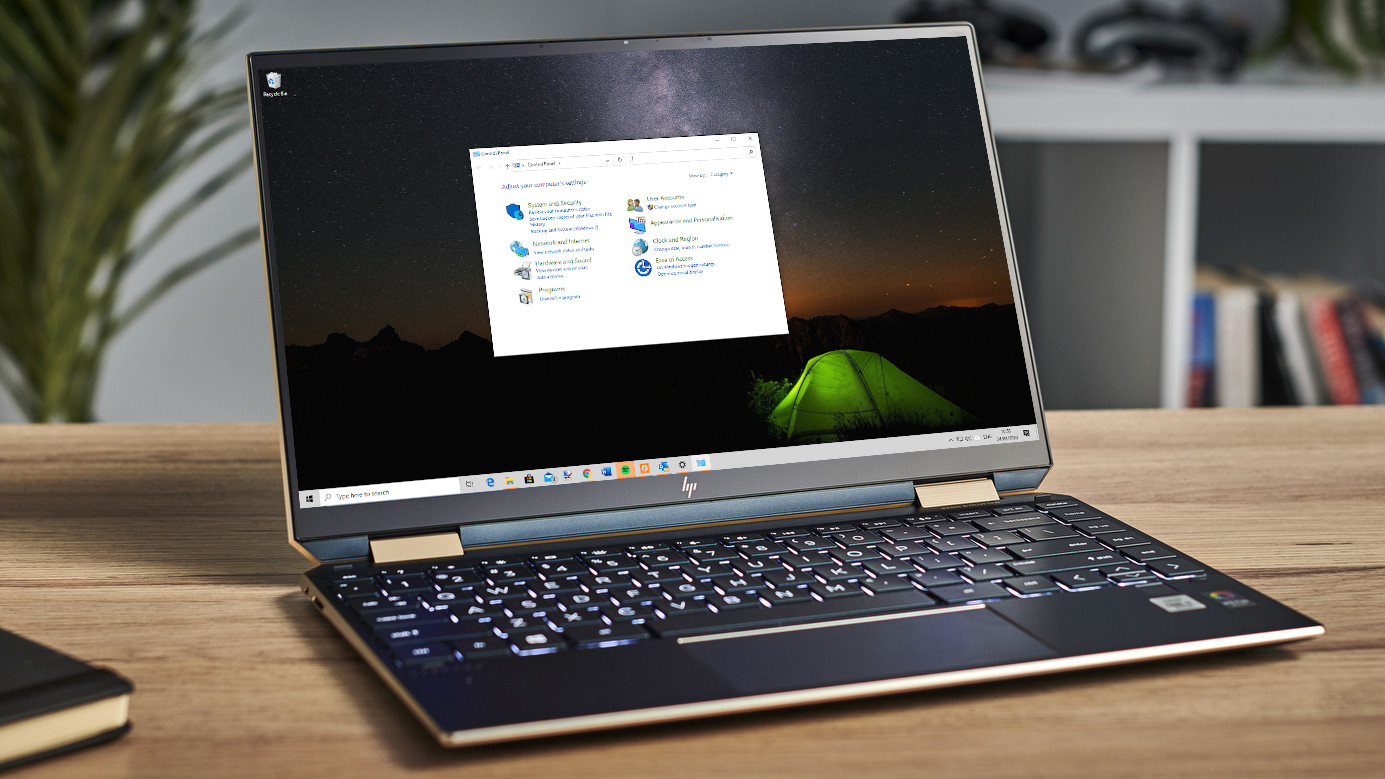Turns out the ‘death’ of the Control Panel in Windows 11 has been greatly exaggerated, as Microsoft issues a clarification
Windows 11 and Windows 10 will keep the Control Panel for some time yet…

Windows 11 and Windows 10 aren’t on the brink of seeing the Control Panel shuffling off into the sunset, Microsoft has clarified.
As Ars Technica reports, this follows a string of articles last week that popped up around the Control Panel – which is nearly 40-years-old and plays host to a bunch of settings and options not catered for in Windows 11’s Settings app, many of which are legacy affairs – insisting Microsoft was in the process of killing it off, finally.
That conclusion was mainly based on a sentence in a support article about system tools in Windows that said: “The Control Panel is in the process of being deprecated in favor of the Settings app, which offers a more modern and streamlined experience.”
This official announcement of the deprecation – meaning the feature is frozen, and marked for removal (but still present in Windows) – was the first time we’d heard Microsoft formally talk about pushing the Control Panel out of the exit door. Even if it’s been clear enough that this is the process the software giant is engaged in, and has been for a long time now – it’s just a very slow, drawn out death for the panel.
However, Microsoft has changed the language in that document, and the Control Panel section now reads: “Many of the settings in Control Panel are in the process of being migrated to the Settings app, which offers a more modern and streamlined experience.”

The ghost of Windows past
The change in emphasis is clear, then, moving away from any talk of deprecation or marking the Control Panel for removal, and letting us know that the lifting and shifting of features from the panel to the Settings app is still very much an ongoing process.
As Ars Technica points out, though, we don’t know the reasoning behind the change of wording. Was this a formal decision Microsoft has reversed based on the reports that flooded out last week (and perhaps some negative feedback from some quarters)? Or has Microsoft not made any decision at all, and just badly worded the update to the support document, and had to clarify what it meant – or rather, didn’t mean – as a result?
Get daily insight, inspiration and deals in your inbox
Sign up for breaking news, reviews, opinion, top tech deals, and more.
We strongly suspect the latter, because the Control Panel has never been on Microsoft’s official list of deprecated features for Windows 11 (or 10) – and you’d think it would show up there first, rather than an announcement like this leaking out via a Windows support page.
Besides, we can’t quite see why Microsoft would have to reverse the decision, if it was made, anyway – who doesn’t want to see the back of the Control Panel, if its demise was really happening? Taking a stroll through the Control Panel’s various sections is a bit like being haunted by old versions of Windows, with features and interface graphics that date back to the nineties. (Although, to be fair, there are some niche functions in here which some users really would miss).
At any rate, to sum up: the Control Panel will probably be with us for quite some time yet, and at least until the next version of Windows, whether that’s Windows 12 or something entirely different. And likely it’ll remain in place for a while even in that new OS, while those more important niche features are shuffled across to Settings.
Do note that in the mentioned support document, Microsoft is still encouraging folks to use the Settings app, rather than the Control Panel, wherever possible.
You might also like...
Darren is a freelancer writing news and features for TechRadar (and occasionally T3) across a broad range of computing topics including CPUs, GPUs, various other hardware, VPNs, antivirus and more. He has written about tech for the best part of three decades, and writes books in his spare time (his debut novel - 'I Know What You Did Last Supper' - was published by Hachette UK in 2013).